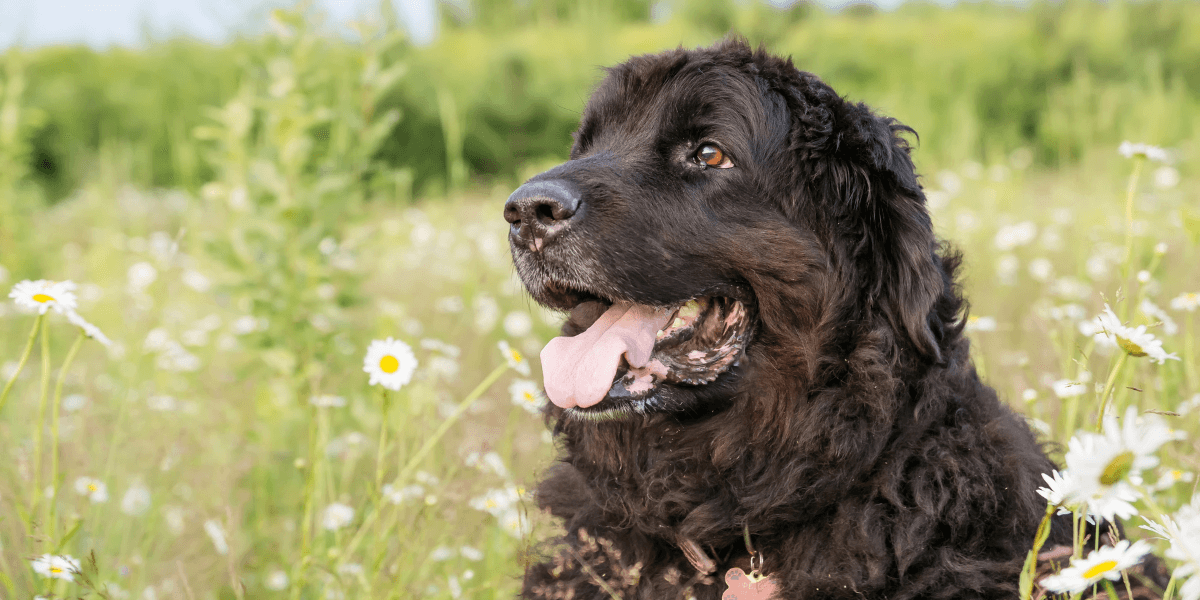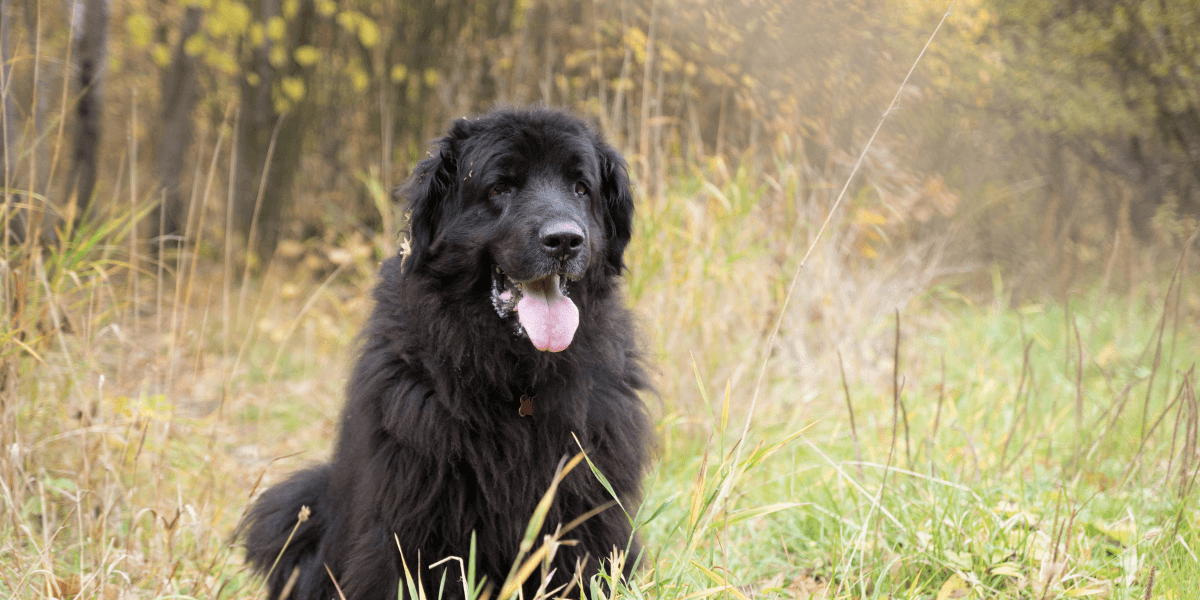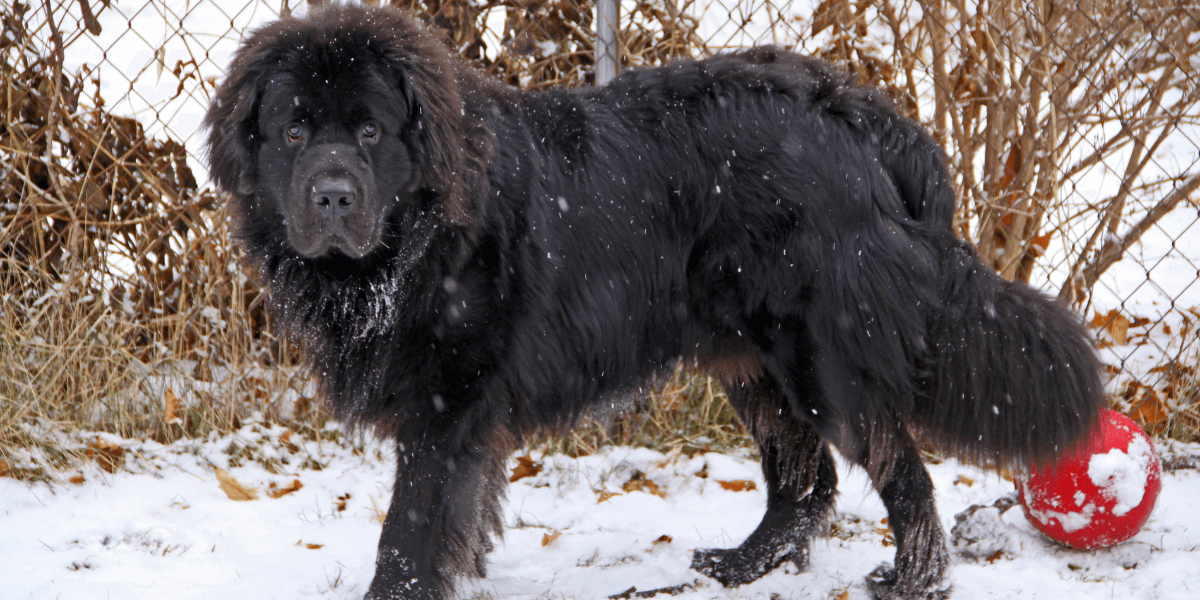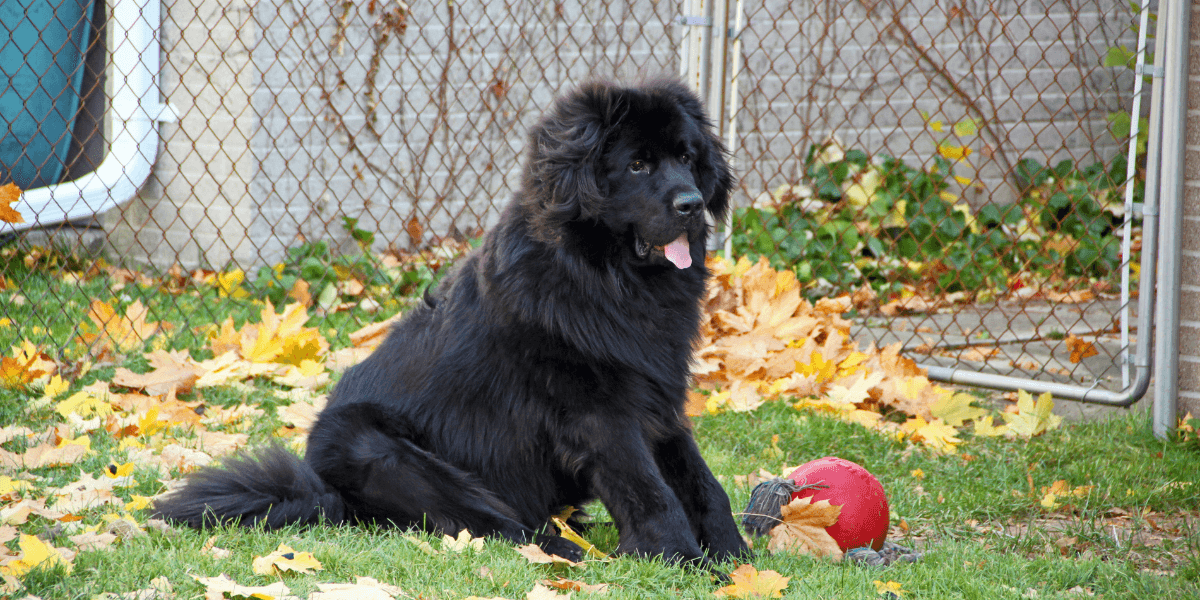Introduction
Understanding Health Concerns for Newfoundlands is key to ensuring a healthy, long life
- These gentle giants are prone to specific health issues that need attention and care
- Early detection can greatly improve your Newfoundland’s quality of life
- Common ailments include joint problems, heart conditions, and skin issues
- Regular vet check-ups is essential for Newfoundland health management
1. Hip and Elbow Dysplasia

Prevention and Care Tips:
- Breeding Practices: Ensure your Newfoundland comes from a breeder who screens for dysplasia
- Weight Management: Keep your dog at a healthy weight to reduce strain on the joints
- Exercise: Regular, moderate exercise is essential, but avoid excessive running
- Supplements: Consider adding joint supplements with glucosamine and chondroitin to their diet
2. Subvalvular Aortic Stenosis (SAS)

SAS is a genetic heart condition common in Newfoundlands
It involves a narrowing below the aortic valve
Leading to heart complications or sudden death if left unchecked
Prevention and Care Tips:
- Early Screening: Ask your vet to conduct heart screenings during puppyhood
- Monitor Activity: Dogs with SAS should avoid overly strenuous exercise
- Medication: If diagnosed, your vet may prescribe medication to manage the condition
- Regular Checkups: Consistent vet visits for heart health monitoring are essential
3. Bloat (Gastric Dilatation-Volvulus)

Bloat is a life-threatening condition where the stomach twists, trapping air inside
Newfoundlands, with their deep chests, are especially at risk
Prevention and Care Tips:
- Feeding Habits: Feed your Newfoundland smaller meals multiple times a day instead of one large meal
- Avoid Vigorous Exercise After Eating: Allow time for rest after meals to reduce the risk
- Elevated Feeders: Using an elevated feeder can reduce the chance of gulping down air while eating
- Watch for Symptoms: If your dog shows signs like restlessness or drooling, seek emergency care immediately
4. Cystinuria

Cystinuria is a genetic disorder leading to the formation of kidney and bladder stones
Newfoundlands are predisposed to this condition
Which can cause blockages and require surgical intervention
Prevention and Care Tips:
- Genetic Testing: Test breeding dogs for cystinuria before breeding
- Dietary Management: Your vet may recommend a special diet low in protein and salt
- Hydration: Encourage your Newfoundland to drink plenty of water to prevent stone formation
- Regular Urine Tests: Frequent check-ups can help detect stone formation early
5. Obesity

Newfoundlands have a tendency to gain weight.
Which can exacerbate other health conditions like joint problems and heart disease.
Prevention and Care Tips:
- Controlled Diet: Feed a balanced diet with proper portion sizes and avoid overfeeding
- Exercise Routine: Provide daily walks and swimming sessions to maintain a healthy weight
- Monitor Treats: Keep treats to a minimum and choose healthy, low-calorie options
- Regular Weigh-Ins: Keep an eye on their weight and adjust their diet as needed
6. Hypothyroidism

Where the thyroid gland produces insufficient hormones, is common in Newfoundlands.
Symptoms include weight gain, lethargy, and coat issues.
Prevention and Care Tips:
- Regular Testing: Have your vet check thyroid levels during annual exams
- Medication: If diagnosed, your dog will require daily thyroid hormone supplements
- Monitor Weight and Coat Condition: Be vigilant for any signs like sudden weight gain or dull fur
- Healthy Diet: Maintain a well-balanced diet to support overall health
7. Ear Infections

Newfoundlands have floppy ears that can trap moisture.
Making them susceptible to ear infections.
These can lead to chronic problems if not addressed promptly.
Prevention and Care Tips:
- Regular Cleaning: Clean your dog’s ears weekly with a vet-recommended solution
- Keep Ears Dry: Dry your Newfoundland’s ears thoroughly after swimming or baths
- Monitor for Symptoms: Watch for head shaking, scratching, or foul odor, which indicate infection
- Veterinary Care: Promptly address any signs of infection with your vet’s help
Compare the health concerns of Newfoundlands to Saint Bernards in our prevention and care guide.
8. Osteosarcoma (Bone Cancer)

An aggressive bone cancer is seen more frequently in large breeds like Newfoundlands
Early detection is key to extending your dog’s quality of life
Prevention and Care Tips:
- Recognize Symptoms: Be alert for signs like lameness or swelling around the bones
- Genetic Factors: Choose breeders who prioritize genetic health screenings
- Consult Your Vet: If cancer is suspected, immediate veterinary intervention is crucial
- Treatment Options: Explore surgery, chemotherapy, or palliative care with your vet
9. Cherry Eye

Cherry eye occurs when the gland in a dog’s third eyelid prolapses
This condition is often seen in Newfoundlands and may require surgical correction
Prevention and Care Tips:
- Genetic Screening: Responsible breeders screen for this condition
- Early Intervention: If you notice signs of cherry eye, consult your vet immediately
- Surgical Correction: In most cases, surgery is needed to correct the issue
- Post-Op Care: Follow your vet’s guidelines to prevent recurrence or complications
10. Heat Intolerance

With their thick coats, Newfoundlands are more prone to heatstroke and overheating
Prevention and Care Tips:
- Limit Sun Exposure: Avoid outdoor activities during peak heat hours
- Hydration: Always have fresh, cool water available
- Shaded Areas: Ensure your Newfoundland has access to shaded areas when outside
- Cooling Gear: Consider using cooling vests or mats in hot weather
- Monitor for Symptoms: Watch for heavy panting, drooling, or lethargy, which are signs of overheating
FAQs
1. What are common Health Concerns for Newfoundlands?
- Hip dysplasia, heart problems, and bloat are top concerns
2. How can I prevent hip dysplasia in my Newfoundland?
- Maintain a healthy weight and provide joint supplements
3. Are Newfoundlands prone to heart issues?
Yes, dilated cardiomyopathy is common, Regular vet checkups help
4. What is bloat, and how can it be prevented?
- Feed smaller meals and avoid heavy exercise after eating
5. How often should I take my Newfoundland to the vet?
- Regular annual checkups help catch early health concerns for Newfoundlands
6. Can diet affect my Newfoundland’s health?
- Yes, a balanced diet can prevent obesity and related health issues
7. Are Newfoundlands prone to allergies?
- Yes, skin allergies are common, Regular grooming and diet adjustments help
Conclusion
- Being aware of Health Concerns for Newfoundlands ensures better care and prevention
- Regular check-ups help in early detection of common Newfoundland health issues
- A balanced diet is vital to maintaining your Newfoundland's overall well-being
- Monitor your dog for signs of health issues and address them promptly
- Proactive care and attention can lead to a healthier, happier life for your Newfoundland
Do you have a Newfoundland or are you considering getting one?
Share your experiences or ask any questions in the comments below!
Let’s keep our furry friends happy and healthy together!
References
For more information on Health Concerns for Newfoundlands, check:
- The Best Joint Supplements for Dogs with Hip and Joint Pain
- Health Issues of a Newfoundland
- Health Concerns for Newfoundlands
- Common Causes of Hip and Joint Pain in Dogs?
- Common Health Issues in Newfoundland Dogs
Thank you!




